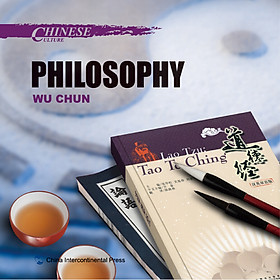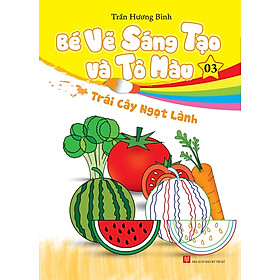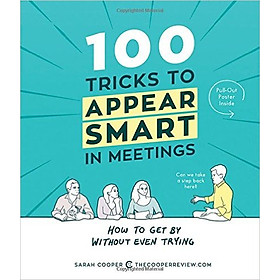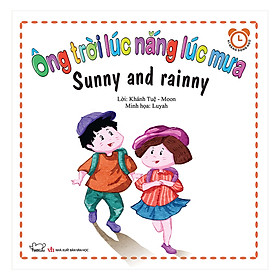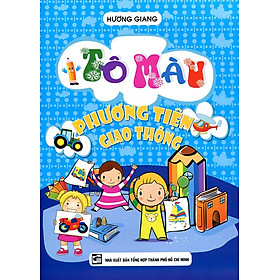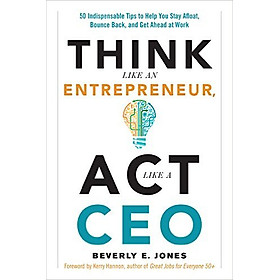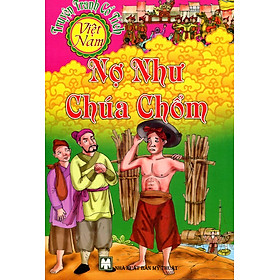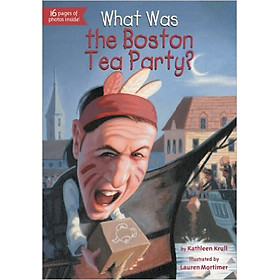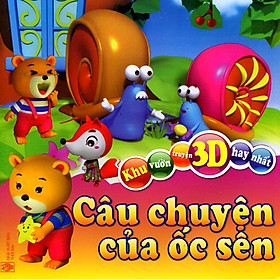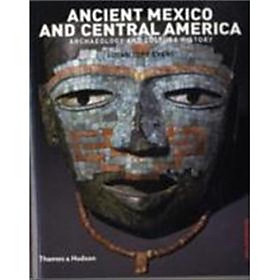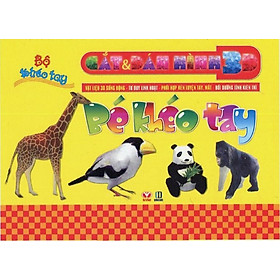Chinese Culture: Philosophy
EditorialReviews Chinese philosophy is extensive and profound. The advocacy of benevolence by Confucianism, which reflects a broad-minded, virtue-based attitude toward the world, is the most...
SKU: 4580959071062
EditorialReviews
Chinese philosophy is extensive and profound. The advocacy of benevolence by Confucianism, which reflects a broad-minded, virtue-based attitude toward the world, is the most valuable quality of the Chinese nation-- – a sublime spirit that is now in the blood of the whole nation. The Taoist wisdom, which is as infinite as heaven and earth and as inexhaustible as rivers, provides a deep and undying source and eternal motivation for the survival and development of the Chinese nation. In fact, Chinese philosophy based on Confucianism and Taoism is among the most important and most precious cultural legacy of the whole humankind. The virtue and wisdom contained therein can be compared to those in any other great tradition of humanity. In order to present a relatively complete overview of Chinese philosophy and its issues, this book has adopted for its narrative a combination of ideas, concepts and categories with thoughts, theories and doctrines.
Main Content
The “Chinese Culture” book series includes ten books on philosophical thoughts, literature, art, Chinese characters, festivals, foods and drinks, crafts, clothes, architecture and medicine. Each book introduces the history of a field or theme and the same origin of Chinese culture reflected by it, pursues its existence and manifestation in Chinese people’s life today, tells those “unknown stories” through smooth and relaxing words and exquisite pictures, reveals Chinese people’s thinking habits, behavioral modes, traditional concepts and social life, and helps readers understand “what Chinese people are like and what their thinking modes and living customs are.”
This book introduces Chinese philosophy alongthe line of topics instead of the line of history. The book has five topics, including: what is the nature of the world; what are the relationships among things; what are social norms; what is the orientation of life; what is the cognitive structure. The first two parts are about views on nature or the world; the third and fourth parts are about views on society and life; the fifth part is about views on cognition and wisdom. This book is intended to give readers the most basic understanding of profound Chinese philosophical thoughts as well as the most excellent and greatest wise ancient Chinese people and wisdom.
Author
Wu Chun, alias Wu Jingdong, is a native of Quzhou, Zhejiang born in Shanghai in 1955. Now he is a professor at the Institute of Philosophy and Cross-culture,Shanghai Normal University, mainly studying the issue of the occurrence and paradigm ofChinese thought and philosophy and also engaging in the study of Chinese ancient science, ethics, religion and art. He has published more than 100 academic papers and more than ten works. His works on Chinese cultural studieshave become a series, including Chinese Thinking Pattern – A Survey of the Occurrence and Formation Period (Shanghai People’s Publishing House, 1998), Paradigm of Ancient Chinese Science – Surveyed from the Perspective of Culture, Thought and Philosophy (Zhonghua Book Company, 2002), Ethical Life in the Chinese Society – A Study Focusing on the Issue of the Possibility of Confucian Ethics (Zhonghua Book Company, 2007),Religious Traditions in the Chinese Society – Opposition and Coexistence of Sorcery and Ethics (Shanghai SDX Joint Publishing Company, 2009) and The Origin of Chinese Philosophy –The History of the Occurrence, Development and Formation of Ideas, Concepts and Thoughts before the Period of the Hundred Schools of Thought (Shanghai People’s Publishing House, 2010).
Contents
Preface
WHAT IS THE NATURE OF THE WORLD?
The Birth of Beliefs
Shen, the Religious Source of Chinese Philosophical Ideas
Atheism
The Formation of Concepts about Nature
Yin and Yang and the Five Elements: the Intellectual Source of Chinese Philosophical Ideas
Vestiges of Magic
Observation and Thinking about Phenomena
The Concept of Difference or Diversity
The Concept of Change or Changeability
Sameness and Difference, Constancy and Change
The Quest for Essence and Laws
Dao
Li
Qi
WHAT ARE THE RELATIONSHIPS BETWEEN THINGS?
The Relationship Between Heaven and the Human, and its Religious and Intellectual Background
The Religious Approach to the Heaven- Human Relationship
The Intellectual Approach to the Heaven- human Relationship
The Dialectical Outlook
Opposition
Mutual Reliance
Transformation
Relativity
The Holistic Outlook
The Golden Mean
Consideration of Both Sides
Synthesis
Association
WHAT ARE SOCIAL NORMS?
Moral Consciousness and the Establishment of Confucian Moral Principles
The Zhou Dynasty: the Origin of the Sense of Morality
Confucius: the Tradition of Rites and the Spirit of Benevolence
The Development of Confucian Social Norms
Mencius’ Idea of Benevolent Rule and Xun Zi’s Idea of “Propriety and Law”
Edification and the Ethical Tradition of Chinese Civilization
The Confucian View on “Righteousness vs. Profit” and “Heavenly Principle vs. Human Desire”
Reflections on Social Issues in Other Schools of Thought
The Taoist Idea of Non-action
The Legalist Idea of Rule by Law
Views on History
Various Views on History
The Circulatory Theory of History
WHAT IS THE PROPER ORIENTATION OF LIFE?
The Ideal Confucian Character and its Cultivation
The Ideal Confucian Character Established by Confucius
The Cultivation of the Ideal Character
Music and Character Building
Completion through Music
Equilibrium and Harmony
The Confucian Theory of Human Nature
Mencius’ Doctrine of the Goodness of Human Nature
Xun Zi’s Doctrine of the Evil of Human Nature
The Development of Theories on Human Nature
The Taoist Outlook on Life
Lao Tzu’s Outlook on Life
Chuang Tzu’s Outlook on Life
WHAT IS THE STRUCTURE OF KNOWLEDGE?
The Source and Ability of Knowledge
Knowing and Not Knowing
Mind and Object
Name and Substance
Language and Meaning
The Structure or Form of Knowledge
Information and Thinking
Gradual Study and Epiphany
Investigating Things and Gaining Knowledge
Removing Obstructions
Receptiveness and Serenity
Views on Knowledge and Action
The Foundation of Early Views on Knowledge and Action
Word and Action, Knowledge and Practice
Zhu Xi’s View on Knowledge and Action
Wang Yangming’s View on Knowledge and Action
Wang Fuzhi’s View on Knowledge and Action
Appendix
Digest
The Ideal Confucian Character and Its Cultivation
Confucians held the ideal that one should possess the sage’s virtue and practice the ruler’s policy. The latter issue was discussed was discussed in Chapter 3, and it was also mentioned in relation to the Eight Terms (Ba Tiao Mu) in Great Learning: to regulate the family, to maintain the state rightly and to make all peaceful. Practicing the ruler’s policy was, in fact, linked to the idea of the sage’s virtue, which was mentioned in Great Learning as being about “cultivating morality” (Xiu Shen) and as comprising righteousness and sincerity. Great Learning began with: “The great learning teaches to act in accordance with morality (Ming De), to respect citizens, and to maintain the perfectness,” (Zhi Shan). Here, Ming De and Zhi Shan are referring to the ideal cultivation of morality, which would lead to the development of an ideal human character. Actually, the idea of the ideal character was first established in the Confucianism of Pre-Qin times.
The Ideal Confucian Character Established by Confucius
The ideal Confucian character consisted of the following principles (which were mainly established by Confucius):
One: Tao and Righteousness. These principles mainly centered on righteousness and profit and included three rules.
1. Righteousness is the most important principle of the ideal character. Confucius said, “A gentleman gives priority (Shang) to righteousness,” (The Analects, Yang Huo). Here, Shang meant “the first place.” Xun Zi elaborated on this idea further, “A gentleman can be insulted by power but not by the loss of Righteousness,” (Xun Zi, On Righteousness). Tao and Righteousness were so important that Confucius said, “I can die in the dusk as long as I know what Tao means in the morning,” (The Analects, Li Ren).
2. Value righteousness and underestimate profit. The edict that “righteousness is the most important” also meant that “profit has the least importance.” Confucius said, “I remind myself of righteousness when facing profit,” (Xian Wen) and “It is meaningless to me when I obtain wealth and power but act against righteousness,” (Shu Er). However, Mencius overstated the value of righteousness, “It is unnecessary to mention profit as there is only benevolence and righteousness,” (Mencius, King Hui of Liang I).
3. Be satisfied with poverty and devoted to Tao. This rule indicated how a person should act in the face of poverty. Confucius stressed, “Wealth and power are what man desires, but he must not enjoy them if he obtains them in an improper manner. Poverty and humanness are what man dislikes, but he must not abandon them if he abandons them in the wrong way. How should a gentleman be called a gentleman if he discards benevolence? A gentleman cannot live without benevolence even when he has dinner, even when he faces urgency, and even when he suffers homelessness.” (Li Ren) Confucius took Yan Hui, his disciple, as an example: “Yan Hui, so virtuous! He lives with a bamboo dish of rice and a gourd of drink in a remote lane. When others worry him, he does not change his devotion. Yan Hui, so virtuous! (Yong Ye).” Here, Confucianism places the gentleman in opposition to the petty man.
Two: The principle for ideal. This was mainly based on moralism and included four rules.
1. Improving oneself. This rule stated that a man should follow the rule “improve oneself” when faced with the goodness and evil (in the same way that he should follow the rule “satisfied with poverty and devoted to Tao” in the face of poverty). Confucius said, “One should serve the ruler when Tao is practiced and seclude oneself when Tao is not practiced,” (Tai Bo) and “One should take a small raft and live a secluded life when Tao is not practiced,” (Gong Ye Chang). Mencius also stated, “In poverty, one should maintain one’s integrity; when on the rise, one should make perfect the whole country,” (With All Heart I).
2. Adhere to goodness. This rule highlighted the importance of upholding the truth, as Confucius said, “One should adhere to benevolence and even surpass his teacher,” (King Ling of Wei) and “One should be devoted to honesty, learning, and goodness with whole heart,” (Tai Bo).
3. Maintain integrity. Confucius said, “One can carry off the commander from a whole army, but cannot take away the will of the common folk,” (Zi Han). Zeng Sen said, “Could a man be called a gentleman, to whom a ruler can entrust his young successor and the whole country, who does not change his will in the face of peril? Yes, he must be a gentleman,” (Tai Bo).
4. Devote your life to Tao. The final rule was to devote one’s life to Tao. Confucius said, “One with “ideal” sacrifices himself to practice benevolence rather than harm benevolence for his survival,” (King Ling of Wei). Mencius said, “One with “ideal” does not fear if he is deserted in the wild; one with valor does not fear if he is killed,” (Duke of Wen of Teng II) and “One should devote himself to Tao when Tao is not practiced,” (With All Heart I). This rule elevated Confucian morality to the highest level, as it called for the highest and most noble of sacrifices.
……
Preface
Preface
Chinese philosophy is an extensive and profound subject that has had a deep and lasting impact on China’s history and culture. In particular, the advocacy of benevolence, which is a central part of Confucianism and which reflects a broad-minded, virtue-based attitude toward the world, has become a central and highly valued part of the spirit of the nation. At the same time, Taoist wisdom, which is “as infinite as heaven and earth and as inexhaustible as rivers”, provides a deep and undying source of motivation for the survival and development of the Chinese nation. Throughout her history, China has returned again and again to those ancient sages and generations of Chinese have reread their classic texts, listened to their teachings, and asked themselves the deep questions that this study has inspired. In fact, Chinese philosophy, based on Confucianism and Taoism, is among the most important and most precious cultural legacies that humankind possesses. The virtue and wisdom it contains can be compared favorably to any other school of philosophy from anywhere else around the world.
As part of the Chinese Culture Series, this book is an introduction to Chinese philosophy structured by subject rather than history. Although this approach makes it impossible to present a complete narrative, this is not a problem. It must be realised that, when looking at over 3,000 years of thinking, many marginal details can be left out without compromising a general, overall understanding of the subject. This is true not only for the history of philosophy, but also for the history of literature, science and art. Hopefully, after having read this book, readers will be left with an exciting impression of the subject, and will be inspired to do further research and reading to get a deeper understanding.
This book is divided into five subjects, which look at five key questions – What is the Nature of the World? What are the Relationships between Things? What are the Social Norms? What is the Proper Orientation of Life? and What is the Structure of Knowledge? In my view, these are the five most basic questions (or subjects) in Chinese philosophy (though they can be broken down into a series of more specific questions). It is worth noting that, of the five subjects mentioned above, the first and the second actually have a profound religious and intellectual background, while the third and the fourth involve social and moral issues. These are the four questions around which many significant thoughts in Chinese philosophy revolve. They are also the four subjects that form the framework of my recent book The Origin of Chinese Philosophy: the Development and Formation of Ideas, Concepts and Thoughts before the Era of Eastern Zhou Philosophers. Although these four subjects are key, the fifth ‘What is the Structure of Knowledge?’ is also very important. It is interesting to note that Taoism places great importance on the first, second and fifth subjects. This is a consequence of its profound intellectual background, as well as its focus on more essential and abstract issues, such as the laws governing the world and the origin of the universe. Although these philosophical issues are difficult to grasp and describe, Taoism presents a unique outlook on knowledge and language. In comparison, Confucianism is more interested in the third, fourth and fifth subjects. This focus is reflected in its theory of self-cultivation, statecraft, and its idea of the combination of “inner sage” and “outer ruler.” According to Confucianism, a person’s life should begin with “investigating things to achieve knowledge” (gewu zhizhi). The aim of this should be to attain an ideal character (becoming the “inner sage”) through the moral cultivation of one’s self. The eventual goal should be to apply oneself to social practice and to achieve the goal of “regulating the family, ruling the state, and maintaining peace for all under Heaven” (becoming the “outer ruler”). An understanding of these ideas, their structures and their relationships with the other major schools of thought may help with the reading of this book and, in turn, help with the development of a deeper understanding of the essentials of Chinese philosophy.
In order to present a relatively complete overview of Chinese philosophy and its issues, this book uses a combination of ideas, concepts and categories to cover a range of thoughts, theories and doctrines. This multi-faceted approach is taken to make the book as comprehensive as possible and to aid understanding of the concepts it covers. The approach taken is important as if, for example, the book only focused on concepts or categories, it would not provide a clear view of some important theories, and might miss out some of the brilliant discussions that have taken place around a certain issue. On the other hand, a narrative only based on theories and doctrines would miss out many crucial concepts and the important ideas they contain.
Illustration



Giá sản phẩm niêm yết của History Chinese Culture: Philosophy trên các sàn TMĐT đã bao gồm thuế theo luật hiện hành. Tuy nhiên tuỳ vào từng loại sản phẩm hoặc phương thức, địa chỉ giao hàng mà có thể phát sinh thêm chi phí khác như phí vận chuyển, phụ phí hàng cồng kềnh, ...
Mức giá và các nhà cung cấp được liệt kê tại đây chỉ dùng để bạn tham khảo. Khi quyết định mua hàng bạn cần xem xét thêm về đánh giá của khách hàng tại shop đó. Sau cùng bạn chọn mua sản phẩm từ nhà cung cấp mà bạn cho là uy tín nhất với mức giá hợp lý nhất. Chúng tôi không trực tiếp bán hàng cũng như vận chuyển và không chịu bất kỳ trách nhiệm nào về quyết định mua hàng của bạn.
| SKU: | 4580959071062 |
|---|

